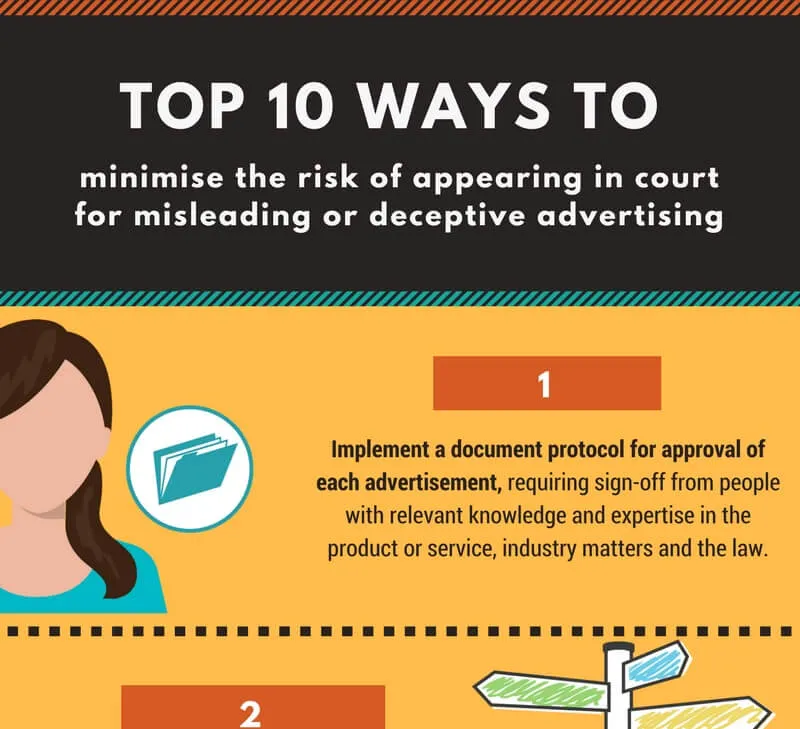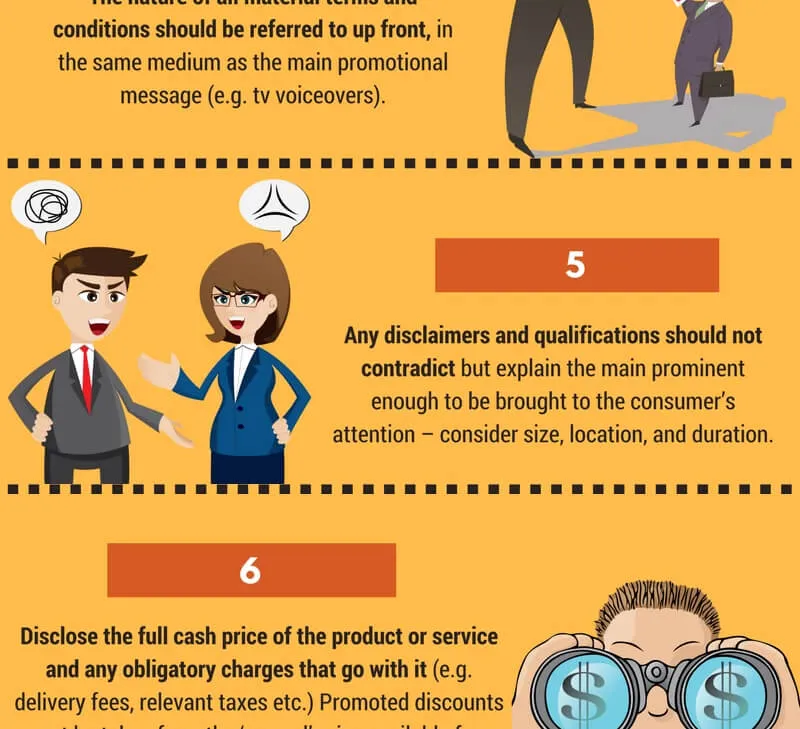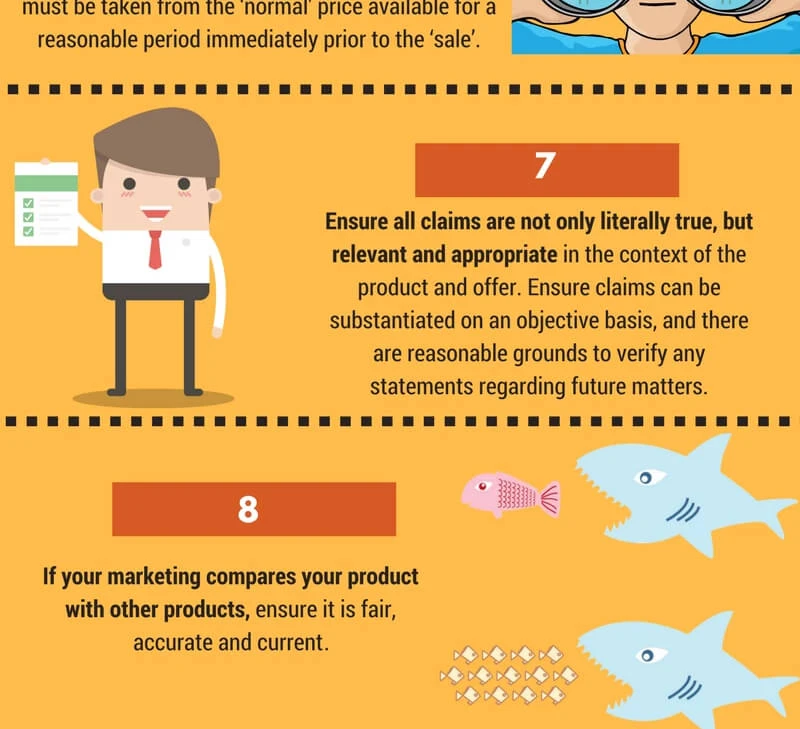In most countries we see Government increasing the protection of citizens from misleading marketing practices by business. With fines rising and the increase in personal liability, and therefore jail-time for employees and directors, it is of vital importance that the right checks and balances are in place in the advertising process. Here are some topline tips to help keep you on the straight and narrow.
You can read more on this topic here.
Share this Image On Your Site
From the infographic:
1. Implement a documented protocol for approval of each advertisement, requiring sign-off from people with relevant knowledge and expertise in the product or service, industry matters and the law.
2. Choose a medium that is appropriate for conveying the promotional message, taking into account the potential audience, and nature and complexity of the offer, product or service.
3. Consider how people receiving your message (both inside and outside your audience) will interpret it, taking into account special characteristics or vulnerabilities. Consider all potential messages – not just those you wish to convey. Ensure the overall impression is complete and accurate including any illustrations (eg accessories, models shown). Do not use corporate or celebrity images or slogans without authorisation.
4. The nature of all material terms and conditions should be referred to up front, in the same medium as the main promotional message (eg. tv voiceovers).
5. Any disclaimers and qualifications should not contradict but explain the main promotional message. Fine print must be prominent enough to be brought to the consumer’s attention – consider size, location and duration.
6. Disclose the full cash price of the product or service and any obligatory charges that go with it (eg. delivery fees), including GST. Promoted discounts must be taken from the ‘normal’ price available for a reasonable period immediately prior to the ‘sale’.
7. Ensure all claims are not only literally true, but relevant and appropriate in the context of the product and offer. Ensure claims can be substantiated on an objective basis, and there are reasonable grounds to verify any statements regarding future matters.
8. If making comparisons with other products, ensure they are fair, accurate and current.
9. Ensure you are ready, willing and able to honour all express or implied promises made. If there is limited stock available, this should be clearly disclosed.
10. Contact TrinityP3.
Do you have a rigorous process to ensure your advertising is not misleading and deceptive?








